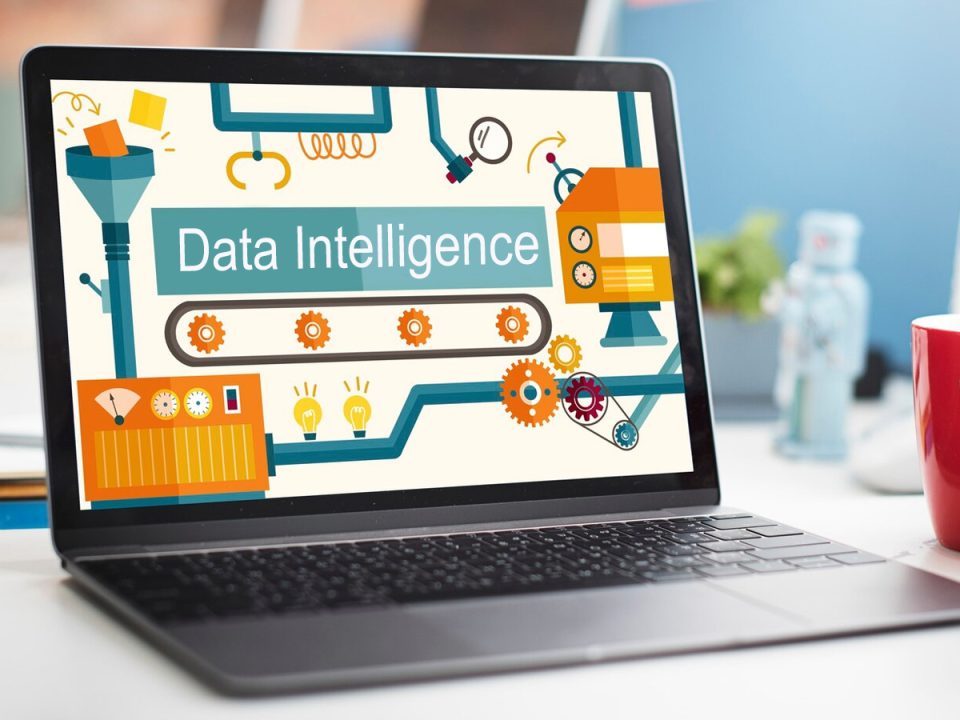Automation and data intelligence are driving significant transformations across finance, particularly in customer experience. These technologies are reshaping how financial institutions interact with customers, offering personalized, efficient, and seamless services.
Enhancing Efficiency and Accuracy
One of the primary benefits of automation in financial services is the enhancement of efficiency and accuracy. Automated processes reduce the need for manual intervention, minimizing human errors and speeding up operations. For instance, tasks such as data entry, transaction processing, and compliance checks can be automated, freeing up human resources for more strategic roles.
Robotic Process Automation (RPA) is a notable tool in this realm. RPA bots can handle repetitive tasks with high precision, ensuring that transactions are processed swiftly and accurately. This not only improves operational efficiency but also ensures that customers receive timely services, enhancing their overall experience.
Personalization Through Data Intelligence
Data intelligence plays a crucial role in personalizing customer experiences. By analyzing vast amounts of data, financial institutions can gain insights into customer behaviors, preferences, and needs. This enables them to offer tailored products and services, enhancing customer satisfaction and loyalty.
Customer Relationship Management (CRM) systems powered by data intelligence are instrumental in this regard. Tools like Salesforce and HubSpot leverage customer data to provide personalized interactions and recommendations. For example, by analyzing transaction histories and spending patterns, banks can offer customized financial advice, credit products, or investment opportunities that align with individual customer profiles.
Predictive Analytics for Proactive Service
Predictive analytics, a subset of data intelligence, allows financial institutions to anticipate customer needs and behaviors. By analyzing historical data and identifying patterns, predictive analytics can forecast future trends and customer actions. This enables banks to offer proactive services, such as suggesting savings plans, alerting customers about potential overdrafts, or recommending investment opportunities.
SAS Analytics and IBM Watson are powerful tools that financial institutions use for predictive analytics. These platforms analyze large datasets to uncover trends and make predictions, helping banks to engage with customers more proactively and meaningfully.
Read More : GlobalFintechSeries Interview with John Sun, CEO at Spring Labs
Improving Customer Support with AI and Chatbots
Automation through artificial intelligence (AI) has revolutionized customer support in financial services. AI-powered chatbots and virtual assistants provide instant responses to customer inquiries, resolving issues quickly and efficiently. This enhances the customer experience by offering round-the-clock support without the need for human intervention.
Chatbot platforms like Drift, Intercom, and Zendesk are widely used in the financial sector. These tools can handle a range of customer queries, from account balances and transaction details to more complex issues like loan applications and investment advice. By providing instant and accurate responses, AI chatbots significantly improve customer satisfaction and engagement.
Enhancing Security and Fraud Detection
Automation and data intelligence also enhance security and fraud detection in financial services, which is critical for maintaining customer trust. Advanced algorithms can monitor transactions in real-time, identifying suspicious activities and potential fraud with greater accuracy than traditional methods.
Streamlining Onboarding and Compliance
The onboarding process in financial services can be cumbersome and time-consuming for customers. Automation streamlines this process by digitizing document verification, KYC (Know Your Customer) procedures, and other regulatory requirements. This reduces the time and effort required for customers to open accounts or access financial products.
Data-Driven Decision Making
Data intelligence empowers financial institutions to make informed decisions that enhance customer experience. By analyzing customer data, banks can identify trends, preferences, and areas for improvement. This enables them to develop products and services that better meet customer needs.
Business intelligence tools like Tableau and Power BI are essential for data-driven decision-making. These platforms provide interactive dashboards and visualizations, allowing financial institutions to gain actionable insights from their data. By leveraging these insights, banks can refine their strategies, improve customer interactions, and enhance overall service quality.
Tools for Automation and Data Intelligence in Financial Services
1. Salesforce Financial Services Cloud
Salesforce Financial Services Cloud is a robust CRM platform tailored specifically for the financial sector. It leverages data intelligence to provide personalized customer experiences, streamline client onboarding, and automate workflows. The platform integrates customer data from various sources, offering a 360-degree view that helps financial advisors and service representatives deliver tailored advice and proactive service.
2. SAS Analytics
SAS Analytics offers comprehensive data analytics solutions for the financial industry. Its tools enable predictive modeling, risk management, and customer segmentation. By analyzing historical data and identifying trends, SAS helps financial institutions anticipate customer needs, optimize marketing strategies, and enhance decision-making processes. The platform’s advanced analytics capabilities ensure precise and actionable insights.
3. Zendesk
Zendesk is a leading customer service and engagement platform that leverages automation and AI to improve customer support. In financial services, Zendesk’s chatbots and AI-powered tools handle routine inquiries, freeing up human agents to focus on complex issues. Its omnichannel support ensures seamless interactions across various communication channels, enhancing the overall customer experience.
4. Tableau
Tableau is a powerful business intelligence and data visualization tool that helps financial institutions make data-driven decisions. By transforming raw data into interactive and insightful visualizations, Tableau enables users to identify patterns, trends, and insights quickly. Financial institutions use Tableau to track performance metrics, understand customer behavior, and refine their service offerings, ultimately improving customer experience.
Automation and data intelligence are transforming customer experience in financial services, offering greater efficiency, personalization, and security. Tools like RPA, CRM systems, predictive analytics platforms, AI chatbots, and business intelligence tools are at the forefront of this revolution. By leveraging these technologies, financial institutions can not only meet but exceed customer expectations, driving satisfaction and loyalty in an increasingly digital world.
Read More : Could Gaming be the Gateway to African APM Adoption?
[To share your insights with us, please write to psen@itechseries.com ]
